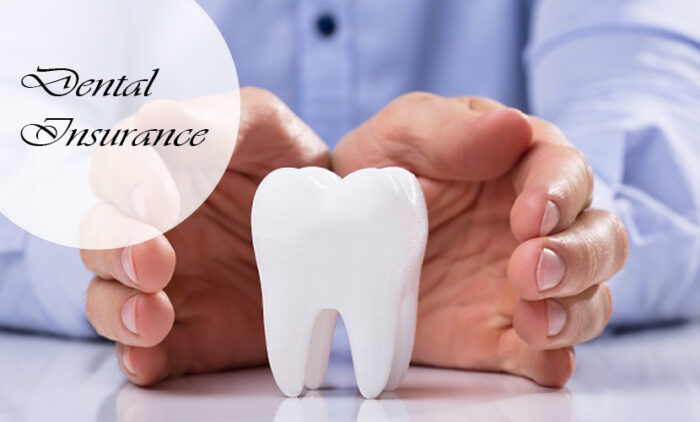Dental insurance is an important type of coverage that helps pay for the cost of keeping your teeth and gums healthy.

Unlike other medical insurance, dental coverage is straightforward. You can get it as part of a medical plan or as a separate policy from an insurance company. There are many benefits, but not all procedures may be covered.
This insurance is meant to make dental care more affordable. As you read on, you’ll learn about specific examples, and we’ll talk about some of the best companies that offer coverage. However, it’s crucial to compare their prices and what they cover before making a decision.
How Does It Work?
As mentioned before, your dental insurance helps cover the cost of dental care, but you’ll need to pay a premium to have this coverage unless it’s provided for free by your employer.
This insurance also involves coinsurance, deductibles, and copayments that you’ll have to pay when you get dental care. However, it’s important to note that this type of insurance is usually separate from health insurance and is often provided by employers.
So, if you’re looking to get dental insurance, it’s essential to compare coverage options from different companies before making a decision. You can purchase it directly from the insurer’s official website or seek assistance from a local agent.
Once you’ve bought a policy, you’ll have coverage for the services outlined in your plan. Keep in mind that any dental procedure not included in your policy won’t be covered by your insurance company.
What Does Dental Insurance Cover?
In this section, you will learn about the typical coverage that dental insurance covers and manages. However, the coverage you get depends on the plan and the insurer. Here is the coverage you enjoy when you get dental insurance:
- Simple extractions.
- Dentures.
- Annual X-rays.
- Root canals.
- Implants.
- Crowns.
- Check up and clean every six months.
- Routine and preventive coverage.
- Fillings.
- Bridges.
- Oral surgery.
Some companies allow policyholders to customize their coverage options to suit their needs.
What Does It Not Cover?
As mentioned earlier, your dental insurance will not provide coverage for some procedures. Here are some of the things this insurance policy doesn’t cover:
- Unimportant veneer placement.
- Orthodontics.
- Unnecessary cosmetic dentistry.
- Teeth whitening.
- Bonding.
- Gum contouring.
- Tooth shaping.
These procedures are not covered by this insurance policy because they are meant to improve and change the look of your teeth. Therefore, they are considered medically unnecessary.
How Much Does It Cost?
The typical monthly cost for a quote is around $47. However, the price of this insurance can vary based on different factors. But there isn’t a fixed or standard cost for buying this insurance policy. Here are some factors that influence the cost of purchasing a policy:
- Annual maximum benefit.
- Location.
- Coinsurance amounts.
- Deductibles.
- Age.
- Copays.
All of these influence your premium in various ways. Therefore, causing the price rate to vary.
Why Do I Need It?
One of the most important reasons why one should have dental insurance is to maintain healthy gums and teeth.
Aside from this, having a policy also helps you reduce the cost of dental expenses. What’s more, unexpected dental procedures are covered when you purchase this type of insurance.
To sum up, getting dental insurance will help you prevent future dental health mishaps and help you save money at the same time.
What To Consider When Buying A Dental Insurance Policy
If you are given a policy by your employer, that is a simple choice, and it is cheaper than getting a quote on your own.
But if you are not and you are looking to get a policy from an insurer, you might want to compare the plans and quotes using these:
- Annual maximum.
- What regular treatments are covered?
- Total costs.
- Who is qualified for such coverage?
- What major dental care is covered?
- Who is in charge of the treatment decisions?
- What the plan covers.
- Are you allowed to see a dentist when you need to?
- Limitations on pre-existing conditions.
- Find out if you can choose your dentist.
- Does the policy cover emergency services, diagnostics, and preventive services?
- How much does it cost?
- Is there any out-of-pocket limit?
- Coverage for braces.
If you find good dental insurance using these tips above to find out what to consider, you will be able to pick the perfect insurance policy.
How To Apply For Dental Insurance
Applying for dental insurance is very easy. But before you begin your application, you need to make sure that you have compared the coverage options and cost of getting one using the tips above. Once you have found a good insurance company, here is what you need to do:
- Find out how much coverage you need.
- Visit the official website of the insurance company you would like to use.
- Go to the application page.
- Enter your personal information as well as other important details for the application.
- Once you are done, submit your application form.
If your registration is complete and you have finally purchased a quote, you can file a claim when you need to.
Best Dental Insurance Companies
Now that you know how to compare and apply for dental insurance, here are some top companies offering the best rates and coverage. If you’re interested and looking for insurer recommendations, here are a few:
- Guardian.
- Spirit Dental.
- Physicians Mutual.
- Anthem.
- Humana.
- Ameritas.
- Cigna.
- UnitedHealthcare.
- Denali Dental.
- Renaissance Dental.
- Delta Dental.
- MetLife Dental.
- Argus.
So, there you have it. the best insurance companies to consider when you are searching for or interested in buying your insurance policy online.



